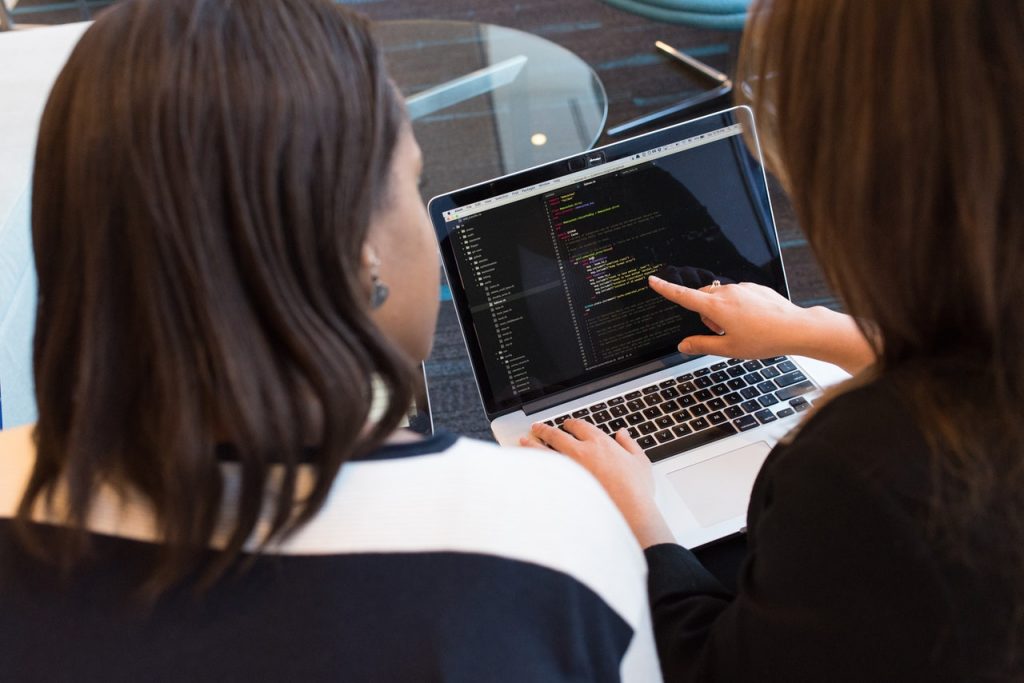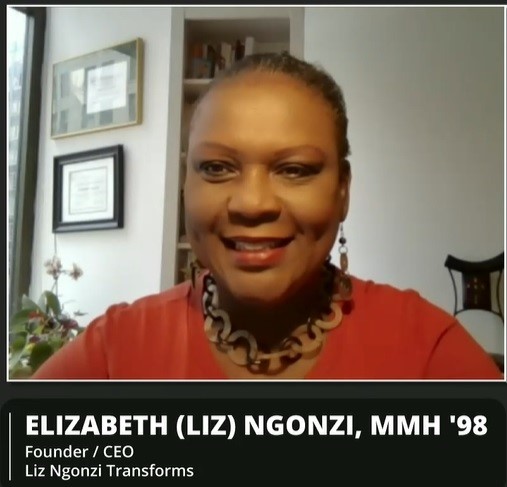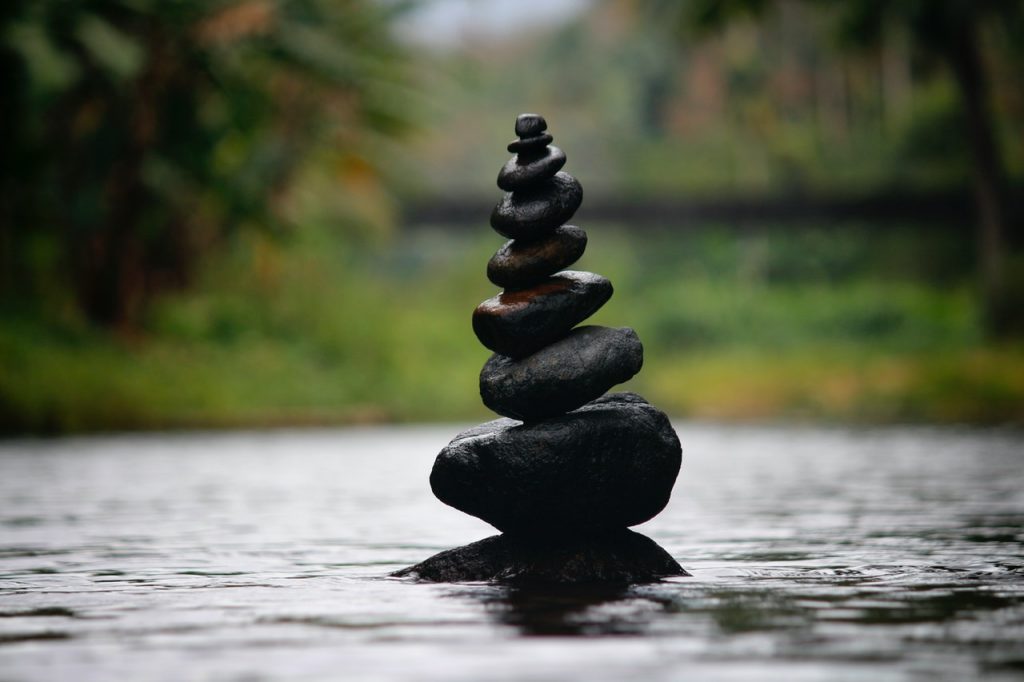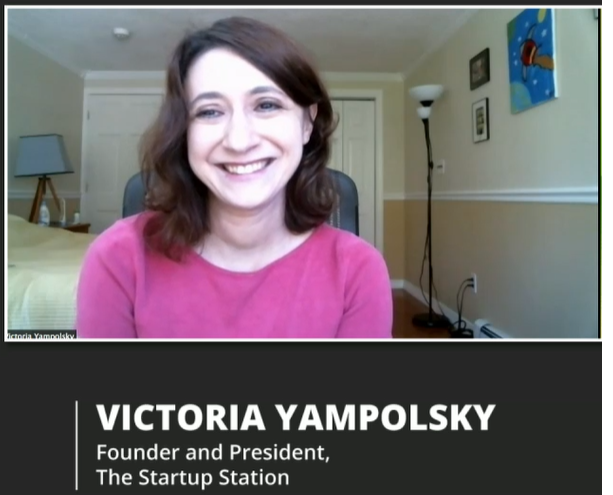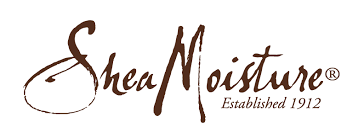Introduction
Recently
we reached out to participants in the Bank of America Institute for Women’s
Entrepreneurship at Cornell to ask three questions:
- How
has the COVID-19 situation impacted your business and personal lives?
- Has
it created any interesting opportunities?
- Can
you share a tip about how you are handling things and how others are helping
(or how you are helping others)?
Over
150 women responded and we were both impressed and inspired by the
answers. Below we explore some of the
themes. Included in Appendix 1 is a list
of some of the resources mentioned by the respondents. In this accompanying video we report some of
the inspirational quotes we collected.
The Tsunami
Devastating. Shaken. Caught off guard. These are some common responses to the question we asked about how the COVID-19 situation has impacted entrepreneurial businesses of Institute participants. Some, like Rania who leads ID4A Technologies, have had to quickly change gears to manufacture and distribute critical medical devices and healthcare products. Many have seen cancellations of contracts, disappearance of clientele and increased anxiety from employees and customers. Others, like Sonji, whose company, Nouveau Chique, depends on manufacturing in Italy, have seen their supply chains disrupted. Some who support their businesses with outside jobs are now unemployed. Many bank and venture sources have stalled or dried up. The result has been declines in revenue and funding, while costs continue to pile up.
In
addition to taking a hit on revenues, many respondents mentioned the personal
challenge of isolation and the mental difficulty of maintaining normalcy while
remaining inside most of the day. As
Celina put it, “I really do miss the hugs and love.” Homeschooling children has had its
challenges. Leesha, who noted “this
homeschooling thing is not for me,” found herself tapping her educator friends
for help with her kids and their studies, which are now delivered online. Eraina and others worked on solutions for
parents, such as creating packets and digital downloads for those trying to
maintain education for children stuck at home.
In addition to adjusting to new
online learning challenges, kids are also suffering with isolation from friends,
difficult emotional reactions and disappointments, such as cancellation of prom
and graduation.
There
were other observations about the impact of “sheltering in place.” Alexis said,
“I now have two extra people at home, ALL THE TIME!”, a reflection on how the
forced togetherness can make working on the business difficult. Another student said, “I live with my mother
and while I adore her, she drives me a bit crazy sometimes.” Dealing with difficult family members was
often mentioned, and sadly, one woman has been fleeing from an abusive spouse
and trying to find support during a time when so many people are in need. Still
others struggle with either personal or family health issues, including some
who have themselves contracted the virus.
Angie has a relative in need of major heart surgery and Audrey works
with cancer patients. In both cases,
medical and emotional needs continue during this crisis.
All
these personal and family issues seem to fall heavily on the shoulders of
women, as they feel the need to be the source of strength and help for everyone
in their ecosystem, including the squeeze play of taking care of elderly family
members and their own children. Practical issues, like keeping everyone fed, clean,
healthy and safe also adds to the burden. Case in point: one mother of four wrote to
say that she did not have a washer and dryer and all the laundromats in her
area were closed!
When Practicing Social Distancing, Go Virtual
Institute participants are meeting the serious and
urgent challenges posed by the COVID-19 with creativity and resilience. Most are considering some virtual way of
serving their customers. As Coonoor puts
it, this has been “a great kick in the pants” to finally considering offering
her business consultancy in an online format. Zakiyyah has been analyzing the best practices
of other businesses as she thinks about how to take her Reiki practice virtual.
Michelle is using the downtime from her wedding planning business to explore
video marketing strategies. Others are
already delivering their products/services through online platforms. For example, SheNesia is holding online boot
camps focused on food and fitness, Beverly has taken her family practice online
with telemedicine, Shanara booked an online speaking gig, and various
individuals (Mych’layla, Octevia, Nadiyah, Sade and Taryn) are delivering coaching
or therapy online. Lindsay has created
more classes on branding and Adina is teaching mindfulness virtually.
Not all of these virtual solutions immediately result
in revenue (Sarah said, “I’ve never worked so hard for free!”). Nonetheless, moving into online settings can allow
entrepreneurs to entice future clients and to experiment with products that
might expand or enhance the product/service line in the future. As examples, Alyssa is offering “snippets” of
help with conflict resolution for free and Patti is adding pandemic-specific
content to our Implicit Bias e-learning course.
Many participants commented on the
work-from-home/remote work situation that is now facing most businesses. Lisa B. runs a cloud computing consulting company
that has always operated with a remote workforce. For entrepreneurs that are shifting to a new work-from-home
model during the COVID19 situation, she suggests that it is still important to
maintain virtual face to face contact.
She recommends scheduling conference calls in groups to enable
co-workers to “socialize over video” as well as continuing to have “regular
team meetings with team building activities.” For Lisa G., the transition that her
promotional branding company’s team made to virtual was challenging for a group
of workers that were used to being engaged with each other in the office. To alleviate some of the feelings of
isolation on her team, they are “communicating throughout the day via Slack,
text, email and Zoom” which helps the team feel connected despite the
distance.
Don’t Pause, Act!
Despite the fact that many businesses are currently paused,
we received lots of great suggestions for how to spend that “found time.” Patti pointed out that in order to be ready
to recover, entrepreneurs should spend time and energy preparing a business strategy
for re-entry. Tiffany suggested entrepreneurs look for
tactical ways to prepare as well. In her
case this involved doing a deep cleaning and sanitizing of her salon.
Others mentioned the importance of advocating for
state and federal assistance for small businesses. For example, Joyce contacted her elected
representatives and signed her company’s name to several suggestions for
stimulus project ideas that could build long term social equity and help
marginalized community. JeFreda
created an online petition asking the Government and states to consider viable
options for all business owners, including the self-employed solopreneurs.
Re-imagining one’s product is another important
survival strategy. LaQueanya, who owns a
mobile cupcake company, is now selling cupcake-making kits for kids. Leah is
working on creating efficiencies in her sales/onboarding business
processes. Additional ways to improve,
enhance or evolve the business were suggested, including: updating the business
plan, redesigning the website, working on strategy and outreach, building up one’s
social media presence and LinkedIn network, and completing SBA certification
for loans.
Personal development was also heavily featured in
answers we received, including things like participating in webinars and other
virtual training opportunities. Olrica
is brushing up on Excel skills and listening to TED talks and podcasts that
have helpful business content. Many mentioned strengthening personal skills
through online resources on resilience, executive presence, organization skills,
marketing, etc. Tanisha is using
SkillShare and Hope*Writers as two sources for free online traning.
A treasure trove of suggestions were offered up by Beverly, who, in addition to being family practice doctor, does some business consulting. Her list is presented in a “to do” format to facilitate printing them out and pursuing the relevant items.
- List the services you provide on Fiverr (or put up advertisements on Facebook, Instagram, or craigslist).
- Consider selling on Etsy.
- Re-vamp your website, your portfolio, your contracts, online content, offers/discounts.
- Reach out to all old customers and all potential new customers and establish an email list to send biweekly or monthly emails to keep them informed real time and let them know what you are offering during this global crisis.
- Offer to answer any questions your clients might have.
- Fill your feed with stories that cultivate connectedness during this time of isolation.
- Share encouragement via social media, your website, or via LinkedIn.
- Establish a Yelp! Page (or a review page on Google). Then, reach out to old customers and offer them a free mini-service or mini-product for a review on Yelp! (or on Google).
- Create a pricing guides/price list, especially in service-based businesses.
- Make your products available online EVERYWHERE (Shopify, Facebook marketplace, PayPal invoices and Square Space).
- Create gift cards or discount codes (preferably online or in an email to customers) that are easy for clients to access and use in the (near) future.
- Support your local /fellow small business owners. Possibly support or feature a fellow small business and/or leave reviews on their services/products.
Do Unto Others
Many
respondents focused their comments on how the crisis has provided opportunities
to help other small businesses, their community and family members. In many cases, individuals are using their
own personal and business training/skill to help others. Joyce helped her “octogenarian Dad” to use
Zoom to reconnect with his book group and so he can investigate ways his
musical quintet can practice together virtually. KeeShanda is helping people with COVID 19 related
travel concerns. Vanessa used her web
programming skills to build a website for her county to enable residents to
donate to a fund to support small businesses.
To support restauranteurs in the Houston area, Leah created a
spreadsheet and form for establishments to provide information on their
offerings during the lock-down. Lisa reached out to other entrepreneurs and has
participated in podcasts. Others are
supporting local businesses by ordering takeout or buying gift certificates, or
sending supplies via online sources to business colleagues. Many are contributing to communities by volunteering
in food pantries, helping the homeless, giving away gas cards, providing meals
for families in needs, tutoring college students, helping with community youth,
and coordinating with neighbors for grocery shopping. Dite decided to spread some beauty by
purchasing 200 tulips distributing them to families at her son’s school. Alesia is helping victims of domestic
violence, for whom she points out this is a particularly dangerous time.
Supportive
business decisions are also being made.
For example, when possible, some entrepreneurs are continuing to keep
employees on the payroll. Marissa waived
rent for a florist whose business operates out of her property. Joyce is hiring small minority business
owners for all of the service contracts that support her business and providing
some leeway if their output is delayed. Anita is providing (pro-bono)
matchmaking for small businesses to find safe (in most cases SBA) funding
solutions. Shalayah is spreading
awareness about the various relief funds available for artists and small businesses. Joanna is connecting local residents with
each other to purchase natural local products (local tea, honey, and vegetables).
In
Every Cloud…Silver Linings
We
were impressed with how people are making lemonade out of lemons. For some, like Tanisha, the crisis has pushed
her even more compellingly towards entrepreneurship. Many have identified new business
opportunities out of the crisis. Camille
pivoted her catering business and is now selling individual meals. In a similar
vein, Onnie’s meal prep company is thriving because the situation is creating a
lot of demand for grab-and-go and pre-ordered dinners. Joyce found that circumstances have opened
new opportunities with clients who need her to take on more of their work while
they balance family demands. Similarly,
Marcy has been able to step in to manage functions like payroll and benefits
administration when staff members fall sick.
Mia is finding a heightened interest/concern about finances, making her
advice and services more appealing. Trenisha,
a STEM educator, found that when schools were closed, she was contacted to
teach coding online, leading her to think about what else she might offer virtually.
Alyson mentioned it allowed her to “test the waters” in seeing how successful
she can be as a brand to support large numbers of employees working
remote.
There
were comments made about how having more time has created benefits for businesses. Joshsalyn
mentioned they now have more time to send out orders and focus on building
their customer base. Ericka changed her
pricing to attract new clients (flash sales for her online courses). Nesreen ran a “purchase necessary” contest
to generate online sales. Mira is using
this unexpected downtime “templates, writing meaningful content and just
streamlining and working on the back end of my business.”
Many
responses referenced the effect of “found time” and its impact emotionally. Domonique recommended
giving oneself “permission to take action on the things you have wanted to
do.” Michelle,
a cross-cultural wedding planner, said “despite all the added workload, my
heart is in a much more rested state….the [easing of ] on-demand requests and
instant satisfaction have allowed me to breathe in between my tasks…allowed me
the grace to slow down and do things I’ve always wanted to do.” Similarly,
JodyAnn, said the pause in the action has allowed her to think more clearly
about what she really wants out of her endeavor. Numerous women (Octevia, Crystal, Patti,
Veonne, Domonique, Shelia and Alesia) have decided to work on their book
projects more intensely. Others point to saving money due to eating less, placing
less wear and tear on cars, reducing membership fees and using Zoom to reduce
travel expenses. Shaneisha said the
slowdown forced her to make healthier choices.
Interestingly, she has been exposed to Instagram Live by participating
in dance parties and workout sessions and the experience has inspired her to
shift her own launch strategy to the Instagram Live platform (instead of
creating a web series).
There were many personal “silver linings” as well. Shalonda mentioned restoring and rebuilding family relationships, Celina said it allowed her to “view life and opportunities with even more gratitude…families are being mended, memories are being made.” Rachelle has used this time as an opportunity for “my husband and I to discuss the different expectations for men and women related to work and personal life” as they juggle housework and childcare while both working from home. Colleen mentioned the opportunity for “wonderful family time” with her teens. Time for prayer, meditation, additional sleep and game-playing were also mentioned.
How to Cope
There were so many wonderful and inspirational comments about
coping, we put some of them in the accompanying video. Common
advice for coping included self-care suggestions, like walking or exercising
every day, relying on faith, meditation, journaling, therapy, and avoiding the
social media and news outlets to remain calm.
Khadi listens to soothing music while applying a facial. Lisa recommended maintaining structure and
routine for both adults and children.
She uses a daily schedule with her husband to divide up childcare and
allow each of them time for exercise and work.
In a similar vein, Imani said to “rise early and listen to your internal
compass for the plan of the day.”
Finally, the oft-heard advice: Wear a mask, wash your hands, don’t touch your face, and maintain social distancing. Stay well!
Appendix 1 – Links and Resources
Funding, Loans and Financial Support for Small Businesses
- SBA site for small business loan and funding (courtesy of program participant Claunecia Haines)
- Spanx Red backpack fund (courtesy of program participant Fallon Havens)
- SheaMoisture Black Business Relief Fund (courtesy of program facilitator Liz Ngonzi
- Online Petition (courtesy of program participant JeFreda Brown) regarding need for government support for small businesses. JeFreda was also interviewed for USA Today and ABC News Nightline
Working Remote
- Blog post to help those working from home for the first time (courtesy of program participant Heather Wilson). Additionally there is a 9-film documentary about TaxJar corporate team working remotely
Family Resources
- Resources for family and youth (courtesy of program participant TaKarah DuPree)
Self-Care
- Beyond the Busyness: Practicing Self Care in Times of Uncertainty (courtesy of program participant Mia Bradford)
- Brain.fm: Music to improve focus, meditation and sleep (courtesy of program participant Katherine Ong)
Other Resources
- Free book download of “You Had It All Along: 5 Keys to Unlocking the Power of Confidence in Your Core” (courtesy of program participant Sheila Kennedy)
- Article on decision to offer products/services during this global pandemic (courtesy of program participant Sheila Kennedy)
- Digital Marketing on a Budget Facebook Group (courtesy of program participant Tonya Cross)-
- “Ask a Black Woman” podcast (courtesy of program participant Shanara Sanders) –
